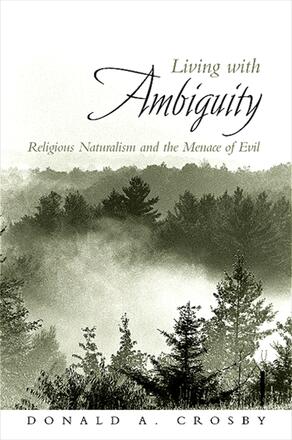
Living with Ambiguity
Religious Naturalism and the Menace of Evil
Alternative formats available from:
How a religion based on the sacredness of nature deals with the problem of evil.
Description
In this book Donald A. Crosby looks at how a religion based on the sacredness of nature deals with the problem of evil. Further developing and defending the vision of religious thought and life elaborated in his previous work, A Religion of Nature, Crosby explores how such a vision can enable us to interpret, respond to, and cope with the diverse forms of evil in the world, arguing that an ambiguity of goods and evils in human life, in nature as a whole, and in any conceivable or desirable realm of existence is inevitable. It is therefore futile to seek recourse in powers, presences, states, or realms thought to wholly transcend a combination of goods and evils or to be entirely devoid of evil. This being the case, the central problem of an adequate religious faith is how to live a constructive, meaningful life in the face of this intractable ambiguity. Religion of nature, as it is laid out and explained here, confronts this problem and offers a comprehensive, sustaining, and fully adequate way of conceiving and living a religious life.
Donald A. Crosby is Professor Emeritus of Philosophy at Colorado State University. He has published several books, including A Religion of Nature and The Specter of the Absurd: Sources and Criticisms of Modern Nihilism, both also published by SUNY Press, and Novelty.
Reviews
"Crosby's book succeeds as an academic model of spirituality that can dialogue with the natural sciences without recourse to traditional theology. He opens a new door for deep ecology to enter into the various forums for discussing ecology—a door that comes by way of Nietzsche." — Environmental Ethics
"Crosby argues that nature, rather than anything supernatural, deserves reverence and devotion. He sets forth a vision of life and the universe that is as hopeful as it is realistic." — Nancy K. Frankenberry, editor of Radical Interpretation in Religion
"I have seldom read a work that so deeply challenged me to rethink my views on the various topics this author interweaves into his argument. He is such a clear and compelling writer, providing rigorous yet easily readable arguments, that I would encourage any class in philosophy of religion, theology, or religious studies to include his text as required reading." — Mary Doak, author of Reclaiming Narrative for Public Theology